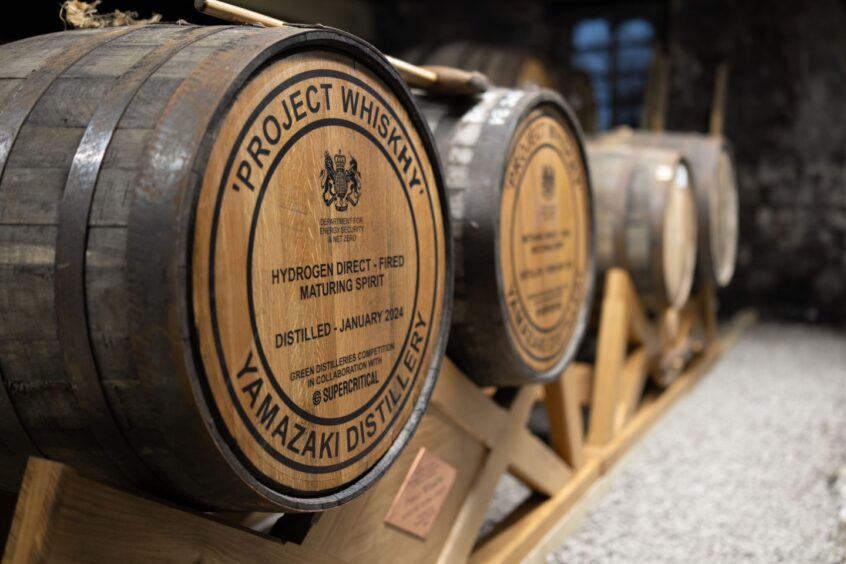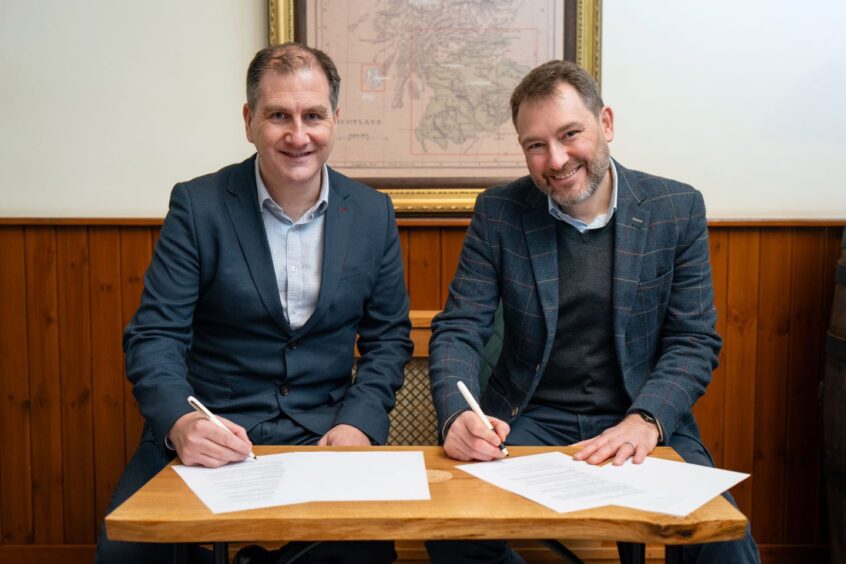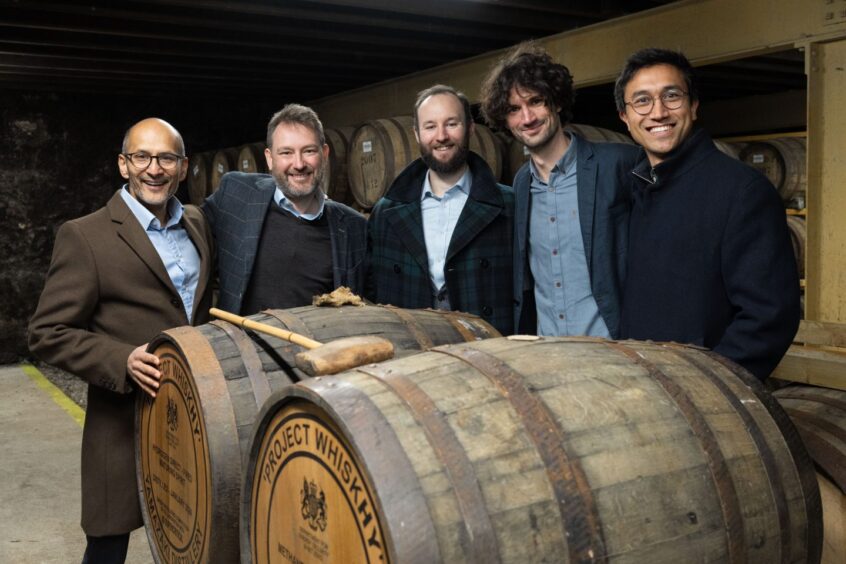
Global drinks giant Suntory (TOKYO:STBYF) has claimed a world first using hydrogen to make low carbon whisky.
The firm unveiled a cask produced using hydrogen at one of its distilleries in Japan, which will now be stored at its historic Scottish production facility, Glen Garioch in Aberdeenshire, for monitoring and evaluation.
At a special casking event hosted at the 227-year old distillery, Suntory and its partner Supercritical Solutions announced an agreement to continue developing the technology in order for it to be rolled out across its estate in Scotland, which includes facilities producing major single malt whisky brands such as Bowmore and Laphroaig.
The memorandum of understanding (MOU) agreed between the Japanese spirits giant and the young UK energy start up firm moves the partnership on to the next stage. The collaboration first began thanks to a government-backed initiative to decarbonise Scotland’s whisky industry which relies on producing spirit in remote locations often powered by oil tanks.
In 2021, the WhiskHy project received a £3 million funding from the then Department for Business, Energy and Industrial Strategy (BIES) through the £12m Green Distilleries competition.
The distillation sector was an early target for achieving net zero carbon emissions. Worth £6.2 billion to the UK economy a year, it accounts for more than 25% of the UK’s total food and drink exports. However, Scotland’s 148 distilleries consume around 3.7 terawatt hours (TWh) of energy every year.
The concept for the partners focused on using hydrogen as a fuel for “direct-firing”, which is regarded as a traditional method of distilling, by which an open flame is used rather than indirect heating by steam coils.
The “milestone moment” at the Yamazaki distillery’s pilot still proved that direct-fired distillation using 100% hydrogen is feasible.
The project has also proved a boon for hydrogen start-up Supercritical. The London and Teesside-based firm was founded in 2020 by chemical engineer Luke Tan, CEO Matt Bird and CTO Mike Russ.
The collaboration with Suntory – the world’s third largest spirits producer behind the UK’s Diageo (LON:DGED) and France’s Pernod Ricard (PAR:RI) – pushed the small team of hydrogen electrolyser designers to innovate their design.
As a result, the firm has successfully patented its proprietary technology, an ultra-efficient, high-pressure electrolyser designed for on-site hydrogen production and storage.
This has put the firm on track for series A fundraising.
And while the company now expects to grow alongside Suntory’s role out plans, it is also targeting much more significant industries including green ammonia production.
Alistair Longwell, head of distilling and environment at Suntory Global Spirits said the project was about “dream big and go for it”.
“It hit all our targets and ambitions, from proof of positive sustainability. But it was not just about decarbonisation, it was about trying to find that way to decarbonise our process while also allowing us to optimise spirit quality. Because we are a firm believer within this business about taking the ways and methods of the past which create the right flavours we want but doing so in a modern, sustainable application.”
As the spirit in the warehouse at the distillery matures, it will be tested for flavour and quality compared to a sister barrel of control spirit produced with fossil-fuel powered direct firing. The resulting hydrogen-fired liquid won’t be able to be called Scotch whisky due to its distillation in Japan, but the partners took the decision to start the project there on the basis of time and costs. Since introducing a direct fired still at Glen Garioch (pronounced ‘geery’) under a recent £6m renovation, Suntory aims to maintain traditional whisky production processes while bringing in zero emission fuel sources eventually.
Matt Bird, CEO of Supercritical said: “We are developing a completely new type of electrolyser. The electrolysers you can buy today are 50, 60% efficient. That translates to high cost – efficiency does really count. Our technology is 95% efficient, and we deliver at a high pressure, so we start eliminating gas compressors. We can put it straight into a storage cylinder and it’s there when you need it. And that is important for things like distilleries, because they are 24/7.
“When you start thinking about the bigger picture, how do you make hydrogen cheaper and useful? That is where we started four and a half years ago. And thanks to this project and the government and investors’ funding, we have proven everything I just said.
“Being able to deliver that efficiency and produce hydrogen – the opportunity is large for lots of different industries, not just the distilling sector.”
Recommended for you


 © Supplied by Jonathan Addie/ Sunt
© Supplied by Jonathan Addie/ Sunt © Supplied by Jonathan Addie/ Sunt
© Supplied by Jonathan Addie/ Sunt